- Things To Do
- Events
- Food & Drink
-
Places To Go
- Winnipeg
- Churchill
- Eastern Region
- Central Region
- Interlake Region
- Parkland Region
- Western Region
- Manitoba North
- Must-See Destinations
-
Itineraries
- Island Getaway on the Prairies
- Wheat City Wanderings in Brandon
- Escape to the water and the wild
- St. Boniface Winter: Passion and History
- Follow the path to a story in Neepawa
- Unleash your inner Viking this winter
- Explore Clear Lake this winter like never before
- Breathe in the Whiteshell this winter
- Go North for a boreal forest escape
- Treaty Areas
- Where To Stay
- Trip Essentials
- #ExploreMB Blog
Navigation Options
- FREN
- Things To Do
- Events
- Food & Drink
-
Places To Go
- Winnipeg
- Churchill
- Eastern Region
- Central Region
- Interlake Region
- Parkland Region
- Western Region
- Manitoba North
- Must-See Destinations
-
Itineraries
- Island Getaway on the Prairies
- Wheat City Wanderings in Brandon
- Escape to the water and the wild
- St. Boniface Winter: Passion and History
- Follow the path to a story in Neepawa
- Unleash your inner Viking this winter
- Explore Clear Lake this winter like never before
- Breathe in the Whiteshell this winter
- Go North for a boreal forest escape
- Treaty Areas
- Where To Stay
- Trip Essentials
- #ExploreMB Blog
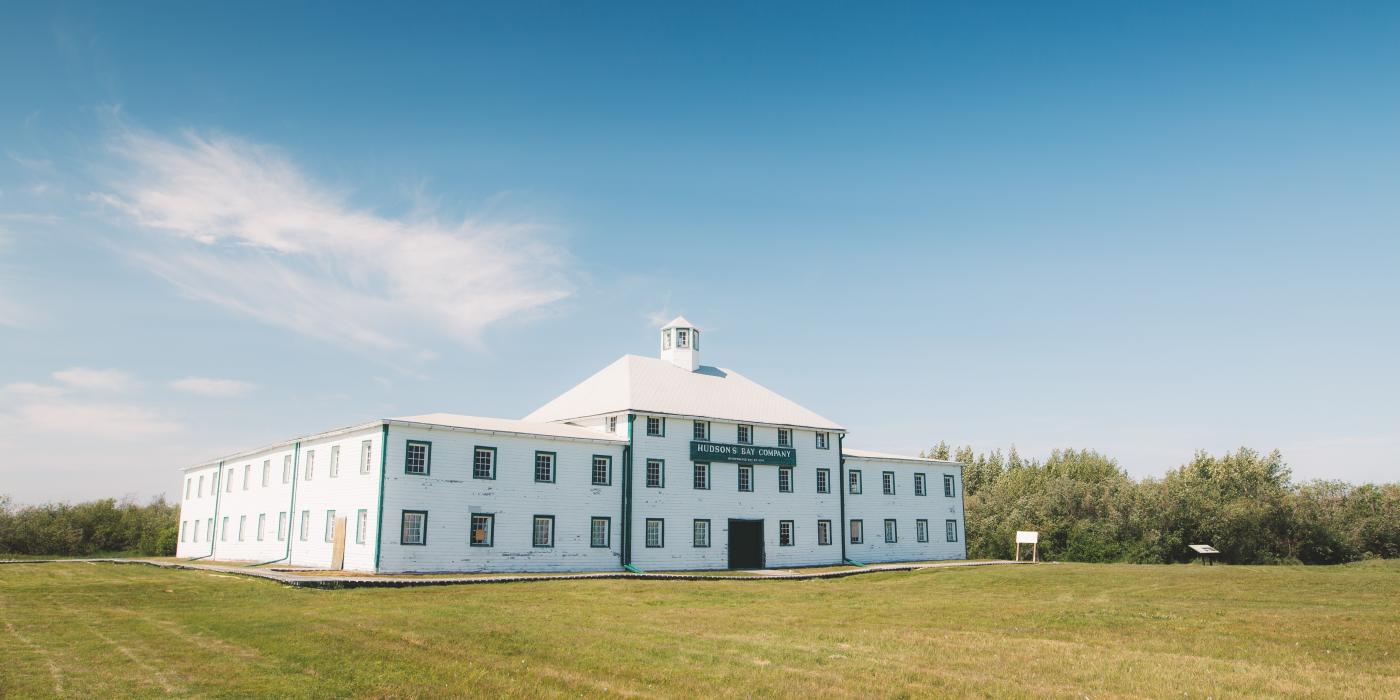
If you’re enthused by the idea of going off the beaten path and being one of few to experience rare travel destinations, it’s time to tune into one of Manitoba’s hidden gems: Nelson River and the historic York Factory. A trip with Nelson River Adventures combines history and outdoor exploration, bringing those with an adventurous heart to a place where few dare to go.
The journey begins
Our first stop on the journey to York Factory National Historic Site was a little northern town called Gillam. Known primarily for being the hub of Manitoba Hydro and home to massive hydro-electric dams, the town is inhabited by workers, locals, and occasionally, those seeking far-flung adventure. Getting to the town involved a quick 2 hour flight from Winnipeg and a 2 minute cab ride from airport into town. You know you’re in a small town when the sole taxi owner also owns the restaurant and bar.
The following morning, we were met by owner and operator of Nelson River Adventures, Clint Sawchuck. With our breakfast packed and ready, we piled into the spacious van and drove 40 minutes to the boat launch point. Clint was our leader for the day, along with sidekick Grizz. The boat was clean and spacious, with the opportunity to sit out the back and watch the scenery go by. We sped by long-abandoned bridges, dredgers, huge rock faces, miles of forested shores and even a set of heart-pounding rapids.
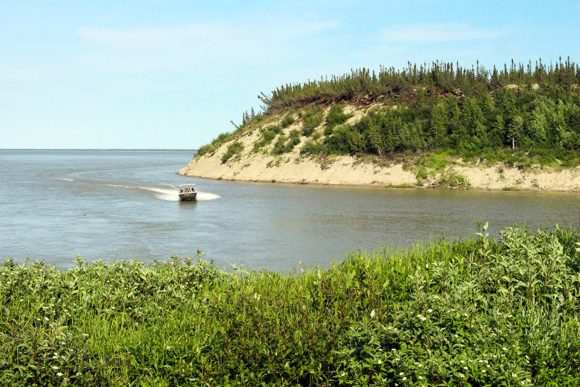
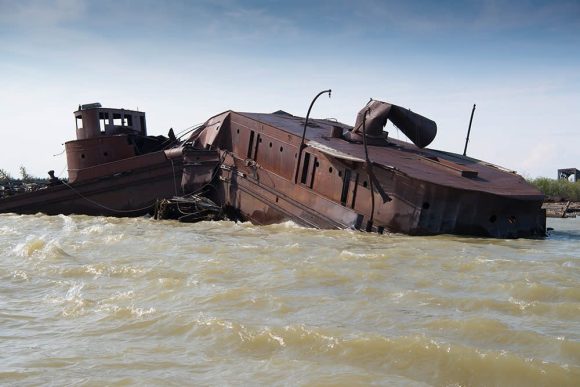
With 3 hours to kill each way, we traded off taking the passenger seat to chat with Clint about his life and business. I learned that Clint was raised on a farm in Russell, and when questioning how a farm boy ends up cruising down the Nelson River, Clint just laughed and launched into a story about his first time he decided to take the boat onto the Nelson. He continued to make expeditions to study the water levels, tides and mark geological features. I was glued to my seat (literally, things were getting a bit bumpy and I was holding on rather tightly) as he described one particularly harrowing excursion that left him stranded in the bay with two polar bears nearby.
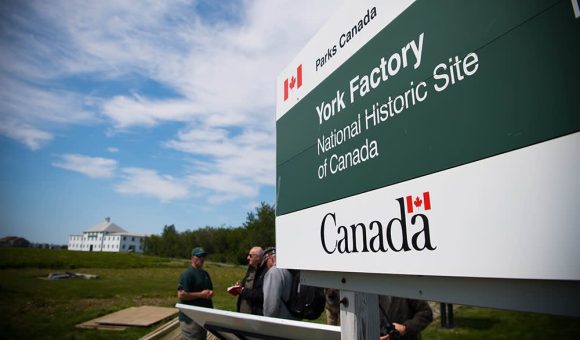

If you think you can only spot spot polar bears and beluga whales in Churchill, think again. We all leaned toward the window when Clint spotted the backs of a pod of beluga whales in the distance as we entered the Hudson Bay. It’s not all uncommon to see polar bears swimming for shore after the ice melts, and even less uncommon to see seals swimming about in the waters of the Bay. And although we didn’t see on this trip, wildlife sightings didn’t disappoint and we marveled at the amount of bald eagles that soared overhead and rested atop the tallest trees. At this point, Clint informed us that we were crossing over no more than 6 feet of water. Timing is absolutely crucial on this type of adventure, unless you want to end up trapped by the tide.
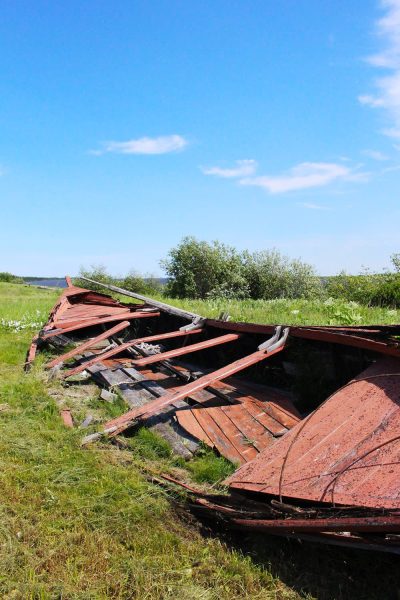
Dan Harper
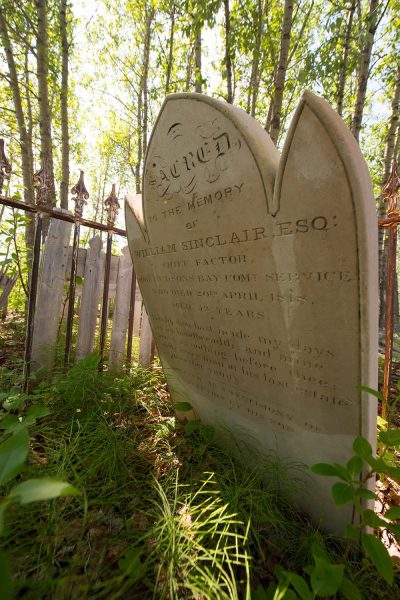
Dan Harper
Arriving at York Factory National Historic Site
After a pleasant and surprisingly smooth journey, we arrived to the main attraction: the historic York Factory. It was a surreal moment to pull up to a small piece of civilization after travelling through pure wilderness. We were greeting by Parks Canada and began our exploration into one of the most important pieces of HBC history. The York Factory was a settlement and trading post for the Hudson’s Bay Company, and while it had operated since the 18th century, it was not official headquarters until 1821. At its height of production, York Factory was trading 40,000 made-beaver (a form of currency) per year.
Walking through the grounds, we took a closer look at the resident York boat (not a historical piece, but a convincing replica brought in for a movie shoot) and wandered through the grave yard, where the oldest grave belongs to William Sinclair, a chief trader who died in 1818. Next to the cemetery is the crumbling gun powder magazine that Parks Canada plans to dismantled to a safe height.
It wasn’t until stepping into York Factory that the group really got a sense of what it may have been like to be stationed at the settlement. Windows were incredibly important to the building, as candles and oil lamps had been banned after the Hudson’s Bay Company had one too many losses to fire. Since the structure was built on permafrost, the building was not secured to the ground and was left with the ability to shift with the changing temperatures. Posts throughout the site could be adjusted according to such shifts in order to relieve some of the tension.
The building was designed to mirror itself, with two packing rooms on either side that would have contained the exact same supplies for convenience. Our tour took us through the entirety of the building, where an abundance of artifacts were laid out after being discovered on the site or washed up from the beach. We looked carefully at nesting kettles, cannon balls, dog bells, knives, bowls and all sorts of items that would have been critical to life at the site.
After several hours of exploring, we made our way back to the boat at 3:30 pm sharp, just in time to make it over the Hudson Bay before the water would retreat once again.
Interested in seeing this historic site with your own eyes? Book your tour with Nelson River Adventures!

